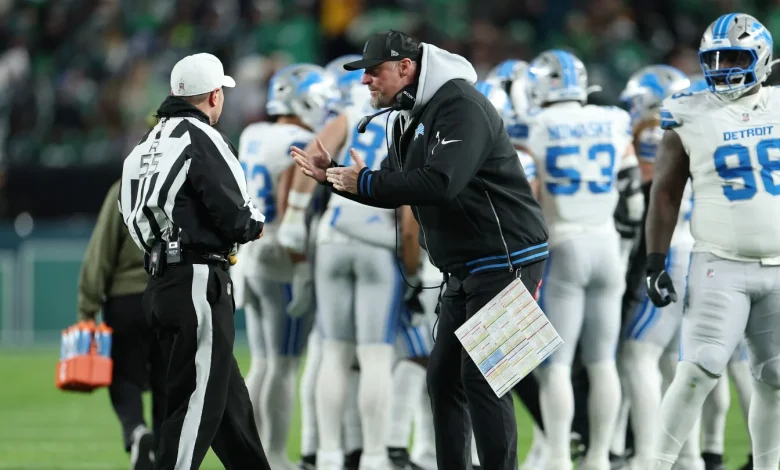Referee Alex Kemp defends “absolutely terrible” pass interference call in Lions-Eagles

With 1:51 to play on Sunday night in Philadelphia, the Lions had a chance to force an Eagles punt and potentially score a late touchdown, in a 16-9 game.
Detroit made the stop. Until the Men in Black (and White) got involved, flagging Detroit cornerback Rock Ya-Sin for interfering with receiver A.J. Brown. NBC’s Cris Collinsworth pulled no punches, calling the penalty “absolutely terrible.”
After the game, referee Alex Kemp was made available to pool reporter Zach Berman.
“Why the pass interference on that play?” Berman asked.
“The official observed the receiver’s arm getting grabbed and restricting him from going up to make the catch,” Kemp said. “So, the ball was in the air, there was a grab at the arm, restricted him and he called defensive pass interference.”
It’s just the latest example of the pointlessness of pool reports. Rarely, if ever, does the referee say, “We made a mistake.” Instead, they routinely restate the erroneous factual basis for the bad decision made in real time.
While the league may think this counts as transparency, it smacks of propaganda. When a clear error has been made, the only acceptable alternative to admitting the blunder should be to say nothing.
As the Commissioner said in 2012, in the halcyon days of the NFL’s hatred of sports betting, “If gambling is permitted freely on sporting events, normal incidents of the game such as bad snaps, dropped passes, turnovers, penalties, and play calling inevitably will fuel speculation, distrust, and accusations of point-shaving or game-fixing.”
The potential motivation for normal incidents of the game becomes no less abnormal when the official explanation from the referee responsible for the crew that made a mistake says anything other than, “We made a mistake.”
The better approach would be for the league to have a skilled and polished officiating spokesperson who talks to reporters after each weekend of games, who takes any and all questions about officiating decisions from the weekend that was, and who gives candid, accurate, and truthful responses — without regard to whether the officials who made mistakes will be upset that their mistakes were publicly acknowledged.
That’s the only way to counter the knee-jerk reaction that a mistake was something more than a mistake. And it’s a continuing mistake for the NFL to not acknowledge this basic truth and act accordingly.





